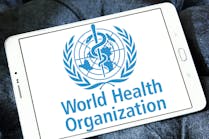Catastrophic financial impact of COVID-19 expected to top $323 billion in 2020 for hospitals, health systems
A new American Hospital Association (AHA) report finds that the immense financial strain facing hospitals and health systems due to COVID-19 will continue through at least the end of 2020, with patient volume expected to remain well below baseline levels.
The report estimates an additional minimum of $120.5 billion in financial losses, due in large part to lower patient volumes, from July 2020 through December 2020, or an average of $20.1 billion per month.
These estimates are in addition to the $202.6 billion in losses the AHA estimated between March 2020 and June 2020 in a report released last month. This brings total losses for the nation’s hospitals and health systems to at least $323.1 billion in 2020. And while potentially catastrophic, these projected losses still may underrepresent the full financial losses hospitals will face in 2020, as the analysis does not account for currently increasing case rates in certain states, or potential subsequent surges of the pandemic occurring later this year. If the current surge trends continue, the financial impact on hospitals and health systems could be even more significant.
“This pandemic has shown once again why America’s hospitals and health systems are indispensable cornerstones of their communities. However, hospitals and health systems are in the midst of the greatest financial crisis in our history, as we continue to fight this pandemic at the same time that non-COVID patient visits remain down,” said Rick Pollack, AHA president and CEO. “While we appreciate the support to date from Congress and the Administration, this report clearly shows that we are not out of the woods. More action is needed urgently to support our nation’s hospitals and health systems and front-line staff.”
The report found that hospitals and health systems currently report average declines of 19.5% in inpatient volume and 34.5% in outpatient volume relative to baseline levels from 2019. In addition, most hospitals and health systems do not expect volume to return to baseline levels in 2020. Importantly, the analysis does not account for currently increasing case rates in certain states, or potential subsequent surges of the pandemic occurring later this year.
While the financial impacts estimated in this report are comprehensive, and take into account the additional costs of acquiring personal protective equipment (PPE) as patient volumes return, they importantly do not include any direct COVID-19 treatment costs hospitals may incur over this time period, particularly if there are future surges of additional cases. Other expenses, such as increased acquisition costs for drugs and non-PPE supplies and equipment, are also not included in these estimates. Thus, the estimated losses in the report do not reflect the full financial impact of the pandemic on America’s hospitals and health systems in 2020. Nor do they include the long-term effects of the pandemic beyond 2020.





